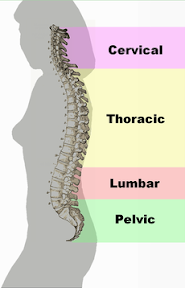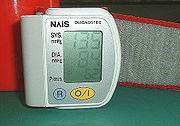This morning's press release is a huge step forward in NNVC's migration to respectability. Devour each paragraph, each sentence below with one eye on the ramifications of this animal study on the entire platform of nanoviricides being developed and as an authentic paradigm changing event in anti-viral treatment. If NNVC is going to triple digits, this is the springboard from which share price should never look back.
Anti-Dengue Nanoviricides Achieve Significant Protection in Initial In Vivo Studies on Dengue Hemorrhagic FeverWEST HAVEN, Conn.--(BUSINESS WIRE)--NanoViricides, Inc. (OTC BB: NNVC.OB) (the "Company") reports that its anti-Dengue drug candidates demonstrated significant protection in the initial animal survival studies of Dengue virus infection. The studies were performed in the laboratory of Dr. Eva Harris, Professor of Infectious Diseases at the University of California, Berkeley (UC Berkeley).
Treatment with one of the anti-Dengue nanoviricides® led to survival of 50% of the animals for the duration of study in the ADE model. In addition, animals treated with several anti-Dengue nanoviricides survived longer than the control animals treated with vehicle alone. This ADE model of infection is uniformly fatal in 100% of the infected animals within 5 days after infection.
Dr. Harris is a leading researcher in the field of dengue viruses. Her group has developed a unique animal model for the most severe and potentially fatal form of Dengue virus infection in humans, Dengue Hemorrhagic Fever/Dengue Shock Syndrome (DHF/DSS). The model emulates the “Antibody-Dependent Enhancement (ADE)” of Dengue virus infection in humans that is believed to lead to DHF/DSS.
“We are very excited about these results,” said Professor Harris, adding, “This is a very important demonstration of a viable drug candidate leading to significant survival in the ADE model of Dengue virus infection. I believe nanoviricides show great promise in our model and against severe dengue disease.”
“The first screen has already shown that we are on the right path,” said Anil R. Diwan, PhD, President of the Company, adding, “We believe we have at least one potential drug candidate against Dengue now.”
“We have been able to produce an effective drug candidate against dengue in a very short time,” said Eugene Seymour, MD, MPH, Chief Executive Officer of the Company, adding, “This demonstrates the strength of the nanoviricides technology platform.”
The Company has previously reported significant efficacy of several nanoviricides in two different in vitro (cell culture) tests against dengue virus type 2 conducted by Professor Harris’ Lab. Some of these nanoviricides were tested in vivo in the present study.
Dengue is receiving significant international attention as it threatens over 40% of the world population, according to WHO. Dengue cases with significant fatality rates have started rising in tropical countries this year already, as demonstrated by reports from India, Sri Lanka, Indonesia, Philippines, Cambodia, and Colombia, among others. Dengue is endemic in Asia, Mexico, the Caribbean, Central America and many countries in South America. Dengue virus infections have occurred in the southern US states, including a current outbreak in Key West, and travel leads to sporadic cases of dengue in the US.
Foundations run by Bill Gates and Carlos Slim are now teaming up with Spain to donate a total of $150 million to fight dengue fever, malaria and malnutrition in Mexico and Central America under the 2015 Meso-American Health Initiative (http://blog.taragana.com/health/2010/06/14/bill-gates-carlos-slim-announce-150-million-health-donation-for-mexico-central-america-24172/).
Dengue virus, a member of the Flaviviridae family of viruses that includes West Nile and Hepatitis C viruses, is transmitted to humans via female Aedes mosquitoes. There are 4 different serotypes of Dengue virus that infect humans. When a person is infected with Dengue virus for the first time, the disease may not be severe, inducing fever, muscle and joint pain, and rash. When the same person is later infected by a different Dengue virus serotype a more severe disease may develop; Dengue Hemorrhagic Fever/Dengue Shock Syndrome (DHF/DSS) occurs in a significant portion of this population. This DHF/DSS may be due to ADE caused by antibodies produced during the first infection. According to the WHO, fatality rates of DHF/DSS can exceed 20%. Currently there are no approved vaccines for prevention nor drugs for treatment of Dengue virus infection.

















.jpg)




























